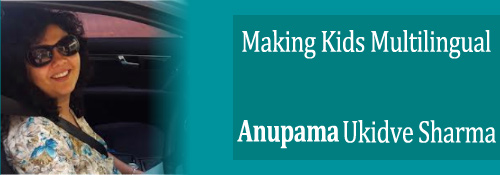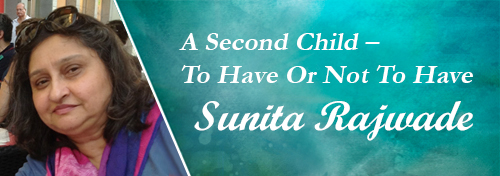Making Kids Multilingual
In the last decade or even in the last couple of decades, we have seen many mixed marriages occurring in India. This simply means that men and women from different Indian states are tying the knot, a distinct departure from just a few decades earlier when it was anathema to think even beyond your own sub caste, forget about venturing out of your own linguistic state!
The result of these unions, like my own, is that the father and the mother each have a different ‘mother tongue’. So parents can choose to teach their kids both the ‘native’ languages, besides our national language Hindi and of course, the language of the ‘Raj’, English. All states in India have now made it mandatory to learn the language of the state right up to 8th grade at least, no matter which board you may choose to put your child in. The net result, of course, is that all children in India are now trilingual or are supposed to be, considering that the municipal schools really have no clue how to teach English, which is again mandatory even in vernacular schools. Other, more fortunate children, move on towards acquiring quadrilingual status by adding a foreign language to their repertoire, since it is commonly perceived that it adds a boost to your resume in a highly competitive job market. I have studied seven languages myself, so I know for a fact that it can be done!
Growing up in the Indian army, we were exposed to lots of Hindi and English and of course to the ‘saveur du jour’ (flavour of the day) meaning the language of the state my Dad happened to be posted in, be it Assamese in Assam or Punjabi in Punjab. In order to ensure that we had a strong multilingual base, my mother had made a weekly chart in our very early kindergarten years, which she used to put up on our refrigerator. We had fixed days of the week when we could speak only a particular language at home. So we had a weekly Hindi Day and similarly a Marathi day, with English being the ‘force majeure’ of course, with a number of days being devoted to it!
It is a well known fact that children do pick up new languages very quickly and easily and forget them rapidly too, if they have been exposed to a particular language for a very short period of time. A number of well educated and articulate, multilingual parents choose to use just English while addressing their newborn or toddler, to avoid confusing the child, they say. While it remains a personal choice, it does not have to be so. When my daughter was born, my husband and I made a conscious choice to use three languages simultaneously with her. So ‘my’ side of the family used Marathi and English while ‘his’ side of the family used Hindi and English.
The net result was that our daughter never babbled, spoke just five words till the age of one year and five months and then directly started speaking complete and coherent sentences in three different languages, depending on whom she was addressing and switching fluently between languages as she interacted simultaneously with various family members. It was funny how, as a two year old, she refused to use Hindi with my mother and equally firmly refused to use Marathi with my husband’s sisters! It also translated to excellent marks in both Hindi and Marathi when she studied those languages later in school, which was not my aim to begin with, but which became the icing on the cake!
My son, also exposed to three languages at home, with Kiswahili thrown in for good measure, since we lived in Tanzania then, was using perfectly pronounced words at seven and a half months and clear, correct, sentences a couple of months down the line. When he turned two, I would tell him a simple sentence in Marathi and used to ask him to go and give my father in law my ‘message’. It was a treat to hear him flawlessly interpret the sentence into either Hindi or English, more often the latter.
My point is simply this. It can be done. It does not matter whether you live in India or are an expat. Your baby’s brain has the capacity to absorb multiple languages. It’s completely your choice how much time you have to spare and how much effort you want to take, programming that marvelous little brain and feeding in language data, through books, stories, poems, rhymes, songs and simple day to day interactions with your child. It also helps to encourage the child to use the language of the state you live in, even if it isn’t your mother tongue. Local people like your house help, drivers, vegetable sellers, your friendly neighbourhood grocer, are all happy to say a few words in their mother tongue to your child, instead of Hindi, as is the norm in India today, which your child will learn sooner or later.
Since our children are in an international school here, the foreign language is introduced very late, given the transient nature of most expatriate jobs. So I introduced my son to French a couple of years ago, as that is the language he will have to take if we move back to India during his high school years. Since it is a ‘non school’ subject, he dislikes spending time studying it and often berates me for the fact that I did not introduce French to him as a baby, despite being fluent in it myself. I’m learning a new language now, the language of the disgruntled pre teen!
Meet Anupama – An archaeologist by qualification, an educational entrepreneur by profession, a linguist by inclination, a writer by vocation! I am a mother of an eleven year old son and a seventeen year old daughter. Currently based in Kenya due to my husband’s job, I manage my Academy in my home town Pune from across the ocean and continue teaching on Skype. To know about my life in Nairobi, memories from India and anything and everything that touches a chord with me, do read my blog: www.kenyankronikals.blogspot.com



